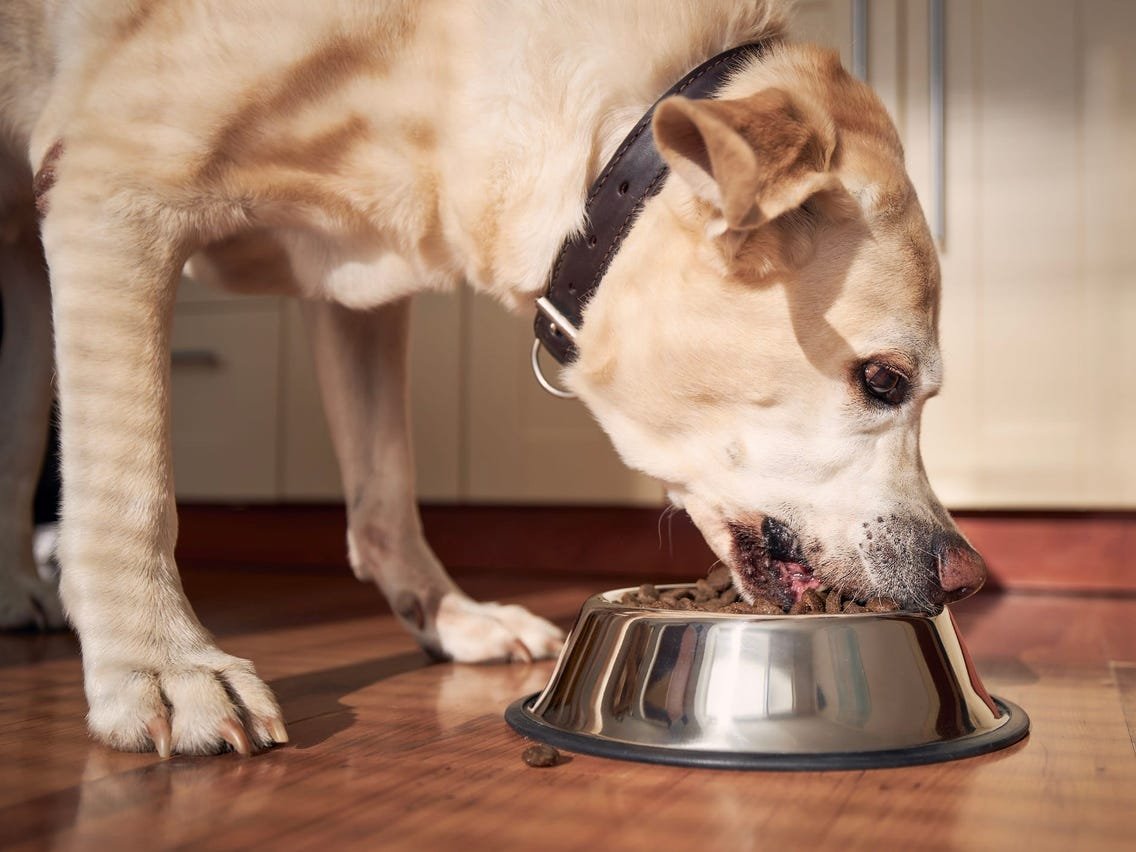CBD oil for dogs is emerging as a popular natural remedy to support pet health. Unlike its cousin THC, CBD doesn’t create any psychoactive effects. It’s a compound found in hemp plants, and it’s been gaining attention for its potential to soothe and comfort dogs without the high.
Pet owners are turning to CBD oil to possibly ease various conditions that their furry friends might face. From anxiety caused by fireworks or thunderstorms to chronic pain that can come with old age, there’s a growing interest in this plant-based oil. It’s not just about providing relief; it’s about enhancing the quality of life for our pets.
The buzz around CBD oil is grounded in the hope that it could offer a natural alternative to traditional medications, which often come with a slew of side effects. Many are already using it to potentially help their dogs with:
- Serenity Now: Helping pets maintain calm in otherwise stressful situations.
- Comfort for the Golden Years: Assisting older dogs in managing the discomforts that come with age.
- Digestive Aid: Encouraging a healthy appetite and aiding in digestive discomfort.
As the interest in CBD oil grows, so does the research. While studies are still underway, early findings suggest there may be benefits to this natural approach. However, it’s crucial to remember that research is in its infancy, and what works for one dog may not work for another. As always, consulting with a veterinarian before starting any new supplement is key to ensuring it’s a safe choice for your furry family member.
What is CBD?

Cannabidiol (CBD) stands as a significant constituent of the cannabis plant, eclipsed only by THC (tetrahydrocannabinol), which is renowned for its psychoactive attributes that lead to the ‘high’ sensation. Unlike THC, CBD is devoid of this psychoactive impact, offering a profile that has captured the interest of the medical community for its potential therapeutic applications.
Most commonly found in oil form, CBD is thought to interact with the body’s endocannabinoid system—a network of receptors spread across the brain, central nervous system, and many peripheral organs, which plays a role in various physiological processes.
The intrigue around CBD lies in its purported ability to modulate bodily functions by engaging with receptors in key areas such as the brain, spinal cord, and a range of major organs. This interaction may influence functions ranging from pain and inflammation to anxiety and sleep.
Though the exact mechanisms of how CBD exerts its effects are still being explored, research has pointed towards its potential as a multi-target therapeutic agent. However, despite the promising anecdotes and early-stage research, substantial clinical trials are necessary to fully understand its benefits and safety profile.
Can Dogs take CBD?

The question of whether dogs can take CBD is becoming increasingly pertinent as the interest in natural therapies for pets continues to grow. While there’s an abundance of anecdotal evidence suggesting benefits, the in-depth analysis leans heavily on what scientific research is available, the legal landscape, and the views from the veterinary community.
Scientific Research on CBD in Dogs:
Research on CBD in dogs is limited but evolving. Early studies have started to examine the efficacy of CBD for issues like osteoarthritis and seizure disorders in dogs. For instance, a study published in the ‘Journal of the American Holistic Veterinary Medical Association‘ found that CBD oil could increase comfort and activity in dogs with osteoarthritis. Similarly, research from Colorado State University suggested that CBD might reduce the frequency of seizures in some dogs with epilepsy.
These studies, while promising, often involve small sample sizes and preliminary methodologies. This means that while they offer glimpses of potential, they are far from conclusive. There’s a need for larger, long-term, placebo-controlled studies to provide more reliable evidence of CBD’s effects on canine health.
The Veterinary Perspective:
Many veterinarians are cautiously interested in the potential of CBD for dogs. They acknowledge the need for more research and are aware of the anecdotal reports of benefits from pet owners. However, due to the lack of FDA approval for most CBD products for animals, many vets are hesitant to formally recommend CBD. They stress the importance of consulting with a professional before giving CBD to dogs to ensure it does not interfere with other medications and is administered in a safe dosage.
Legal Considerations:
In jurisdictions where CBD is legal for human use, there is often a legal gray area concerning its use in animals. CBD products marketed for pets should come from hemp and contain no more than 0.3% THC, the legal threshold in many places. However, not all regions have clear regulations regarding CBD use in veterinary practice, and this can influence both availability and quality control.
Quality and Safety:
The safety profile of CBD in dogs is under review, but so far, it appears to be relatively safe when used responsibly. Potential side effects may include sedation, gastrointestinal upset, or changes in liver enzyme values. Quality control is crucial since the market is not well-regulated; products may vary in purity and potency. Veterinarians and owners are urged to look for products with third-party testing and clear labeling of CBD and THC content.
Hence, dogs can take CBD, and some may benefit from it, the decision to use it should not be taken lightly. An in-depth analysis underscores the importance of approaching CBD use in dogs with careful consideration, guided by the advice of a veterinarian familiar with the pet’s health history and current medications. As research continues to develop, it’s likely that we will gain a clearer understanding of how CBD can be safely and effectively incorporated into canine healthcare.
Potential Benefits of CBD Oil for Canine Health

When considering CBD oil for dogs, pet owners are often curious about the potential health benefits it could offer their furry companions. Here’s a closer look at some of the promising advantages that have led to the growing popularity of CBD in the pet care realm:
-
Pain Relief: CBD is recognized for its anti-inflammatory properties, which can help alleviate pain, especially for dogs suffering from conditions like arthritis or other chronic pain issues.
-
Anxiety Reduction: Dogs with anxiety from loud noises, separation, or other stressors may find calming relief with CBD oil, as it is thought to have natural anxiolytic effects. Of the dogs studied, 83% showed a decrease in stress or anxious behaviors.
-
Seizure Control: There is emerging evidence suggesting CBD oil may help manage seizures in dogs, particularly for those with epilepsy that is resistant to conventional treatments.
-
Neuroprotective Agent: CBD has been speculated to offer neuroprotective properties, potentially aiding in the prevention of neurodegenerative diseases.
-
Appetite Stimulation: For dogs facing appetite loss, CBD may help stimulate eating and prevent nausea, contributing to overall health and well-being.
-
Skin Health: Applied topically, CBD oil can also promote healthier skin and coats, addressing issues such as dryness or irritation.
It’s important to note that while these benefits are promising, CBD should not replace any medical treatments prescribed by a veterinarian. Always consult with a professional before incorporating CBD oil into your dog’s regimen to ensure safety and proper dosing.
Identifying Symptoms of CBD Overdose and Negative Reactions in Dogs
CBD, while generally considered safe, can cause adverse effects in some dogs, especially when given in high doses. It’s crucial to recognize the symptoms and signs of potential CBD toxicity or sensitivity in dogs. Here are some indicators that your dog might not be reacting well to CBD:
-
Lethargy: Excessive drowsiness or unusual sleepiness can be a sign that a dog has consumed too much CBD.
-
Ataxia: A loss of coordination or a staggering gait is a serious sign that your pet could be experiencing CBD toxicity.
-
Vomiting: If your dog begins to vomit after CBD administration, this could indicate an adverse reaction, particularly if the CBD oil is not of high quality or contains more THC than the label claims.
-
Diarrhea: Gastrointestinal upset, including diarrhea, can occur if a dog reacts poorly to CBD.
-
Hyperesthesia: An increased sensitivity to stimuli, such as touch or sound, may also be observed.
-
Urinary Incontinence: Some dogs might experience issues controlling their bladder functions.
-
Changes in Blood Pressure: High doses of CBD can lead to a temporary drop in blood pressure, which might result in light-headedness.
-
Changes in Heart Rate: Abnormal heart rhythms or a rapid heart rate can also be a sign of CBD overdose.
If you notice any of these symptoms in your dog after administering CBD, it is important to consult your veterinarian immediately. They can provide supportive care and help to prevent any further complications. To avoid adverse effects, always start with the lowest possible dose of CBD and observe your dog’s response, gradually increasing only under veterinary supervision. Additionally, ensure that you’re using a CBD product that is specifically formulated for pets, free from additives, and has a certificate of analysis from a reputable third-party lab.
How much CBD oil for dogs with cancer?
Determining the appropriate dosage of CBD oil for a dog with cancer is a nuanced and important decision that should be made in collaboration with a veterinarian who is knowledgeable about your dog’s specific health situation and the potential use of CBD in supportive cancer care.
The optimal dose can vary widely depending on several factors, including the size and weight of the dog, the stage and type of cancer, the presence of other health conditions, the concentration of the CBD product, and individual response to the treatment. There is no one-size-fits-all dosage, and the research into CBD for cancer in dogs is still in its infancy, with no standardized dosing guidelines available.
Typically, CBD dosages are calculated in milligrams per kilogram of the dog’s body weight. Starting with a low dose and gradually increasing it while monitoring the dog’s response is a common approach to identify a dose that may offer therapeutic benefits without adverse effects.
Here are general steps to consider when determining CBD dosage:
-
Consult with a Veterinarian: Always start with professional advice. A vet can consider the dog’s entire health profile and can monitor for any potential interactions with other cancer treatments.
-
Quality Product Selection: Choose a high-quality CBD oil specifically designed for pets. It should come with a certificate of analysis (COA) that verifies the product’s CBD content and ensures it contains less than 0.3% THC (or is completely THC-free).
-
Initial Dosing: Vets often start with a conservative dose of CBD, which might be around 0.2 mg of CBD per kg of the dog’s weight, administered twice daily.
-
Monitoring: Keep a close eye on how your dog reacts to the CBD oil. Look for signs of improvement in symptoms and any potential side effects.
-
Adjusting the Dose: Based on the dog’s response, the vet may suggest adjusting the dosage. It’s crucial to make any changes slowly and with professional guidance.
-
Consistency and Record Keeping: Maintain a consistent routine of administration and keep detailed records of dosages and your dog’s reactions to inform future dosage decisions.
Remember, while there’s anecdotal evidence that CBD may help alleviate some symptoms and improve quality of life for dogs with cancer, it should not replace conventional treatments unless advised by your vet. Always proceed with caution and informed medical guidance when using CBD oil as a supplement in a pet’s cancer treatment plan.
Is CBD Oil Safe for Dogs? A Veterinary Perspective
As a veterinary researcher, I’ve scrutinized the available literature on CBD oil’s use in dogs, which suggests cautious optimism about its safety. Peer-reviewed studies, like those published in the ‘Journal of the American Holistic Veterinary Medical Association’ and ‘Frontiers in Veterinary Science,’ have examined the effects of CBD on canine health. These studies point towards a favorable safety profile when CBD is administered at recommended dosages, particularly for conditions such as anxiety, osteoarthritis, and seizure management.
For instance, research conducted at Cornell University’s College of Veterinary Medicine demonstrated that dogs with osteoarthritis showed significant improvement in pain and activity levels with CBD oil, without discernible side effects (Gamble et al., 2018).
However, safety hinges on proper dosing and product quality. Veterinary guidance is imperative, as the FDA has not yet regulated CBD products for pet use, leading to variability in the composition and concentration of CBD in available products. Moreover, a study by the American Society for the Prevention of Cruelty to Animals (ASPCA) Animal Poison Control Center indicated a rise in accidental CBD intoxication incidents, underscoring the need for vigilant dosage control and monitoring (Mejia et al., 2020).
In conclusion, while CBD oil appears safe for canine use under the right conditions, further research and regulatory oversight are needed to establish comprehensive guidelines for its use in veterinary practice.
Hemp oil vs CBD oil for Dogs
When considering hemp oil versus CBD oil for dogs, it’s important to understand the difference between these two products, as they come from the same plant but are used for different purposes.
Hemp Oil:
Hemp oil, often referred to as hemp seed oil, is made by cold-pressing the seeds of the hemp plant. It doesn’t contain any significant amount of CBD or THC (the psychoactive component of cannabis). Hemp oil is rich in omega-3 and omega-6 fatty acids, making it a great nutritional supplement for dogs. It can improve skin and coat health, reduce inflammation, and support the immune system.
CBD Oil:
CBD oil, on the other hand, is derived from the flowers, leaves, and stalks of the hemp plant, where cannabidiol (CBD) is found in high concentrations. Unlike hemp oil, CBD oil has been studied for its potential therapeutic effects, such as reducing anxiety, pain relief, and anti-inflammatory properties. For dogs, CBD oil is often used to help manage stress, pain, and various health conditions.
Key Differences:
-
Active Compounds: Hemp oil has a nutritional focus, offering essential fatty acids but no significant CBD content. CBD oil contains concentrated cannabidiol and may include other cannabinoids that could have a range of effects on the body.
-
Usage: Hemp oil is mainly a food supplement for maintaining general health, while CBD oil is used for addressing specific health issues.
-
Regulation: Both products can vary in quality, so it’s crucial to choose oils from reputable sources that offer third-party testing.
While both hemp oil and CBD oil can contribute to the well-being of dogs, they serve different health-related purposes. It’s essential to talk with a veterinarian before incorporating either into your dog’s health regimen to ensure it’s appropriate for your pet’s needs and to determine the correct dosage.
CBD Products on the Market
When venturing into the world of CBD for dogs, choosing a high-quality product is paramount for the health and safety of your furry friend. An informed decision, ideally made in collaboration with your veterinarian, can make all the difference. Here are some key considerations:
Opt for Organic: Prioritize CBD oils that are certified organic to ensure they’re free from harmful pesticides, fungicides, or solvents. If organic isn’t available, ensure the product doesn’t contain these substances.
Quality over Cost: While tempting, lower-priced options may compromise on purity and potentially contain harmful additives like pesticides, herbicides, or heavy metals. Investing in a higher-quality oil increases the likelihood of effectiveness and safety.
Certificate of Analysis: Reputable CBD products should come with a certificate of analysis (COA) that verifies the CBD content and ensures minimal THC presence. This transparency is crucial to understand what you’re giving your pet.
Liquid Formulations: Although CBD-infused dog treats are convenient, CBD oils or tinctures offer superior control over dosages, allowing you to fine-tune the amount you administer to your dog, drop by drop.
Remember, the CBD market for pets isn’t uniformly regulated, so these steps are critical for finding a safe and reliable product for your dog.












